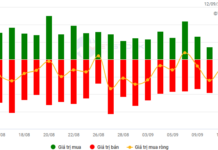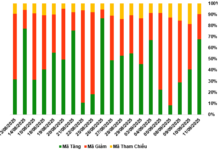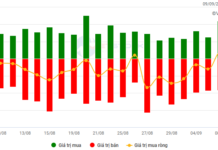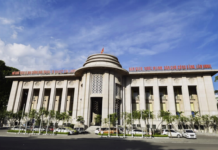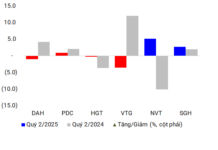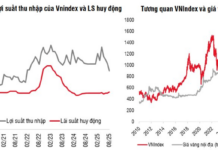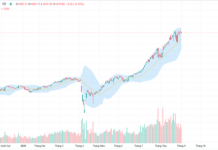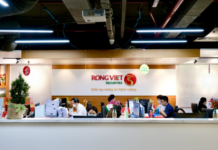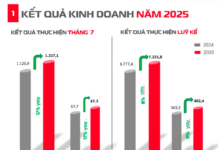 |
Awaiting Half a Decade
Foreign direct investment (FDI) companies listing stocks on the stock market is not a new story. 20 years ago, the Government issued Decree No. 38/2003/ND-CP allowing certain FDI companies to list stocks on the stock exchange after converting from limited liability companies to joint stock companies (JSCs).
Accordingly, 10 pioneering FDI companies have been listed during the 2003-2008 period. However, this process did not progress as expected. It was not until 2017 that a new FDI company, Siam Brothers Vietnam JSC, was listed. Until now, the number of FDI companies listed on the stock exchange has stopped at 11. Among them, there are currently only eight listed companies, three companies have been delisted due to losses (two companies have moved to trading on UpCom exchange, one company has withdrawn from the market).
From 2017 to now, no FDI company has been listed on the stock exchange. This situation is due to various reasons but the main reason is the lack of legal mechanisms to implement it. Since Decree No. 38/2003 expired, the issue of FDI companies listing on the stock market is no longer mentioned in subsequent legislation.
|
Instead of worrying about potential negative phenomena, it is necessary to design appropriate filters along with legal and financial supervision measures when FDI companies list stocks on the stock exchange. |
This does not mean that FDI companies have no demand. On the contrary, some FDI companies have expressed their needs and proposals to the competent authorities and they are only waiting for instructions.
For example, in June 2019, Ngoc Fortress Industrial JSC sent a letter to the State Securities Commission (SSC) proposing guidelines for the stock listing procedures of foreign-invested companies. Afterwards, the SSC issued Official Letter No. 6094/SSC-VSDC on October 9, 2019, with three contents: (i) the existing laws do not have restrictions on listing/trading shares of FDI companies; (ii) However, the current legal documents do not have specific guidance; (iii) SSC is coordinating with relevant agencies to issue guidance documents in the near future.
Following that, some large FDI companies have also expressed their intentions/plans to list their stocks on the stock exchange in Vietnam, such as C.P Vietnam Co., Ltd., AEON Co., Ltd…. However, they are all still in a waiting state… waiting for regulations!
Nearly half a decade has passed since information about the Ministry of Finance coordinating with other relevant ministries to issue guidance documents was widely spread as mentioned in the SSC official letter to Ngoc Fortress Industrial JSC. However, this issue is still unresolved.
The story resurfaced at the conference on implementing the development tasks of the stock market in 2024 on February 28, 2024. In their presentations, Deputy Minister of Planning and Investment Nguyen Thi Bich Ngoc requested to allow FDI companies meeting the legal requirements for stock listing on the stock exchange. In line with this view, the Head of Economic Affairs of the Embassy of the Republic of Korea in Vietnam also said that it is necessary to create favorable conditions for the listing of stocks of FDI companies to improve the diversity of the stock market.
In the context of striving to develop and upgrade the stock market as well as the conclusion of the Prime Minister at the recent conference, removing barriers and creating favorable conditions for foreign investors (including FDI companies) to access the market needs to be done immediately and cannot be delayed.
Opportunities and Concerns
According to SSC, the market capitalization of listed and registered FDI companies accounts for a very small proportion of the total market capitalization, only about 0.3%.
Therefore, if the barriers are removed and the listing path is reopened, it is expected that FDI companies will create additional added value to the stock market and bring benefits to many stakeholders.
In the short term, the market capitalization will increase and the goods will become more diverse. The stocks of FDI companies (especially large, reputable ones) will become a “new spice” in the market, providing more choices for investors.
The process of going public and operating as a listed company requires FDI companies to be publicly transparent in their operations and subject to multi-level supervision from many parties. Moreover, this will ensure fairness between FDI companies and domestic companies, contributing to improving the investment environment to attract more foreign capital.
The above-mentioned opportunities and benefits are easily seen and listed, however, along with them are not a few challenges. Some challenges and concerns have been mentioned, such as: (i) foreign investors divesting and withdrawing capital from Vietnam through selling shares on the stock market; (ii) suspicions about transfer pricing, lack of transparency in financial activities occurring at FDI companies may result in overvaluation of stocks; (iii) the situation of many FDI companies regularly reporting losses, unstable financial situations can adversely affect the market and the rights of investors.
However, if we look at the situation of the listed FDI companies, we can see that there is no negative phenomenon caused by foreign founder shareholders and foreign investors at these companies. Moreover, according to SSC’s observation, the foreign ownership ratio tends to increase in 8 out of 10 companies and decrease in two remaining FDI companies.
Most notably, the case of Bourbon Corporation selling its entire 68.41% equity in Bourbon Tay Ninh JSC (code SBT) to other partners by agreement in 2010, but these shares have not been listed on HOSE. Even though this divestment news has been widely announced, it has not caused any negative reaction from investors and the market. This shows that concerns about foreign investors divesting and withdrawing capital have no basis in reality.
On the other hand, if the purpose of foreign investors is to withdraw capital from Vietnam, there are still many ways to do so whether the shares are listed or not. Investment or withdrawal of capital is a right that needs to be respected. The important thing is to design a legal mechanism for this operation to take place transparently and legally. This can happen on the stock market. Because the purchase and sale of shares by business leaders, major shareholders, and founding shareholders must comply with a strict process and requirements for information disclosure, which is both public and transparent.
In addition, by participating in the stock market as a listed company, FDI companies have to be ready to disclose information, transparent in their activities, and be subject to multi-level supervision of many relevant parties. This can reduce transfer pricing, profit shifting, and tax evasion/avoidance by FDI companies.
Therefore, instead of worrying about potential negative phenomena, it is necessary to design appropriate filters along with legal and financial supervision measures when these companies list stocks on the stock exchange.
The approach of many countries/territories (such as Thailand, Singapore, Taiwan, and South Korea) is to expand the market to welcome foreign investors to participate in the stock market. The stock listing conditions are designed and applied equally to all companies, without discrimination between FDI companies and domestic companies. Instead, strict supervisory measures are implemented. Not only that, these countries boldly open their markets to welcome and invite foreign companies to list on their stock exchanges.
The writer believes that the market management agency in Vietnam also has their reasons to be cautious about the challenges when FDI companies step into the stock market. Although so, hesitation should not arise because of concerns.
Lu Minh Sang (University of Economics and Law, VNU-HCM)

